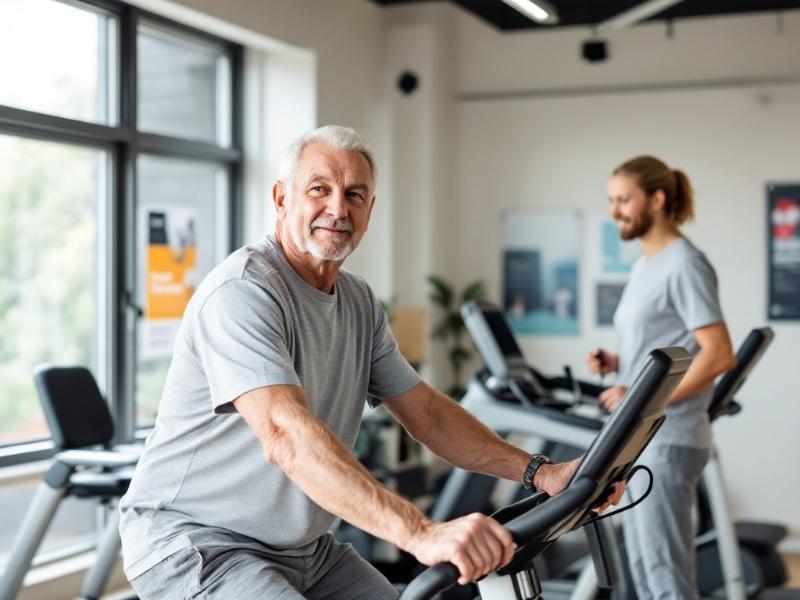A heart event can change everything in an instant. One moment, life feels normal, and the next, there are hospital visits, medical procedures, and a long list of things to be careful about. While doctors focus on physical recovery, many people find that the biggest challenge is regaining confidence in their own body.
It is natural to feel hesitant about movement after a heart event. Many people worry about overdoing it, pushing themselves too hard, or triggering another episode. The fear of the unknown can feel overwhelming, and for some, it leads to avoiding exercise altogether. However, rebuilding strength is not just about physical health, it is about reclaiming a sense of control and learning to trust the body again.
The Psychological Impact of a Heart Event
For many, the biggest hurdle in recovery is not a lack of fitness but a loss of confidence. A cardiac event, even a mild heart attack, can leave people feeling vulnerable, unsure of what they can and cannot do. Even simple activities, like walking up the stairs or going for a short walk, can feel daunting.
This loss of confidence is often linked to fear. Some people feel anxious about increasing their heart rate, while others worry about getting out of breath or experiencing discomfort. The mind becomes hyper-aware of every sensation, making even gentle activity feel risky.
Understanding that this fear is normal is an important first step. Confidence does not return overnight, but with the right support and a structured approach, it is possible to move past the fear and regain both physical and emotional strength.
Building Strength in Small Steps
The key to rebuilding confidence is to start small. Recovery does not require intense exercise or sudden lifestyle changes, just simple, consistent actions that help the body adjust to movement again.
- Taking a short walk every day, even if it is just for a few minutes, helps rebuild stamina and trust in the body.
- Gentle stretching improves circulation and mobility without putting too much strain on the heart.
- Breathing exercises help reduce anxiety and make movement feel more natural.
- Gradually increasing activity over time makes recovery feel more manageable and less intimidating.
Many people find that setting small, achievable goals gives them a sense of progress. Being able to do something today that felt impossible a few weeks ago is a powerful reminder that recovery is happening, even if it does not always feel that way.
Why Support Makes a Difference
One of the most important factors in regaining confidence is having the right support. Many people struggle with motivation or feel isolated in their recovery, which can make it harder to stay consistent. Having a structured programme or a support network can provide reassurance and encouragement.
Cardiac rehabilitation is not just about exercise, it is about education, emotional support, and learning how to move forward with confidence. Some people benefit from attending in-person rehabilitation classes, while others prefer the flexibility of an online programme that allows them to exercise in a comfortable environment.
For those who can only attend one face-to-face session per week, combining it with an online programme can help maintain consistency. This approach allows people to reinforce what they learn in supervised sessions while having the freedom to continue their recovery at their own pace.
Confidence Comes with Time
It is important to remember that recovery is a journey. There will be good days and challenging days, but every step forward, no matter how small, is progress. Confidence does not come from avoiding movement, it comes from experiencing what the body is capable of and realising that it is stronger than it feels.
Many people who once feared movement now look forward to their daily activity. What starts as hesitation gradually turns into a routine, and over time, the fear is replaced with trust. The most important thing is to keep going, even when it feels difficult.
For those looking for a supportive and structured way to rebuild strength and confidence, Cardiac Lauren offers a flexible approach to rehabilitation, helping people take small but meaningful steps towards long-term recovery.














Subscribe and Follow